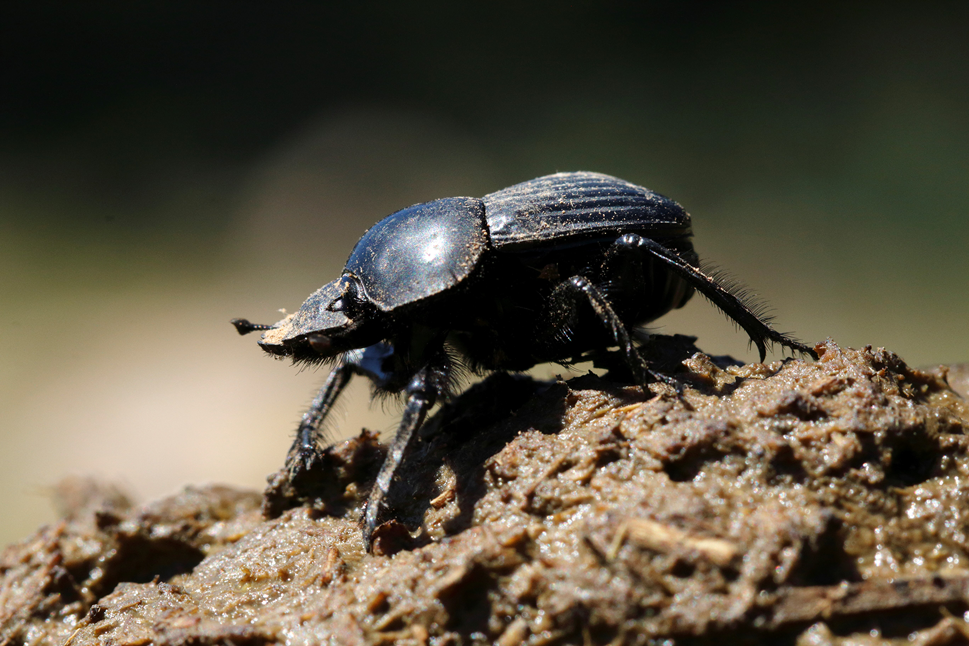In 2022, following a year of development, a group of experts in dung beetle research led by Camila Leandro and Fernando-Vaz-de-Mello proposed the establishment of an IUCN Species Survival Commission Specialist Group focusing on dung beetles (families Geotrupidae and Scarabaeidae), insects that rely on animal droppings for food and reproduction. In natural ecosystems, dung beetle species are threatened by habitat modification, fragmentation and loss, and potential changes in the availability of dung as a result of the modification of mammal faunas. In agro-ecosystems, populations are threatened by over-application of pesticides. In addition, climate change is a threat to the over 6,000 described species.
In August 2022, the Dung Beetle Specialist Group was officially declared by IUCN, and as co-chairs it gives us pleasure to share this news. The new Specialist Group will focus on raising awareness of the importance of dung beetles and their associated ecosystem functions (including nutrient recycling, bioturbation and seed dispersal), and creating enduring partnerships between researchers, entomologists, conservationists and agricultural scientists. We plan to begin by using social media to share our knowledge and interest in dung beetles, introduce the Group's members and hold members’ workshops on topics such as citizen science and the science–policy interface, throughout 2023 and 2024.

Scarabaeus laticollis on a fresh cow dung pat in southern France. Photo: C. Leandro.
The IUCN Red List conservation status assessment for 400 South African species of dung beetle began in July 2022 and soon we will launch the assessment of 200 species from Australia and 300 species from South America. In due course, we hope to engage with the agricultural sector (farmers, ranchers and veterinarians) through communication outreach. In the long term, we hope to work on the identification of Key Biodiversity Areas and conservation planning for dung beetles.
If you would like to get involved in the work of this new Specialist Group or contribute your expertise to conservation assessments, please fill in the form at forms.gle/kNW6CMxQHPbMp57b6. The more diverse the network, the more relevant our actions will be for the conservation of dung beetles globally.


